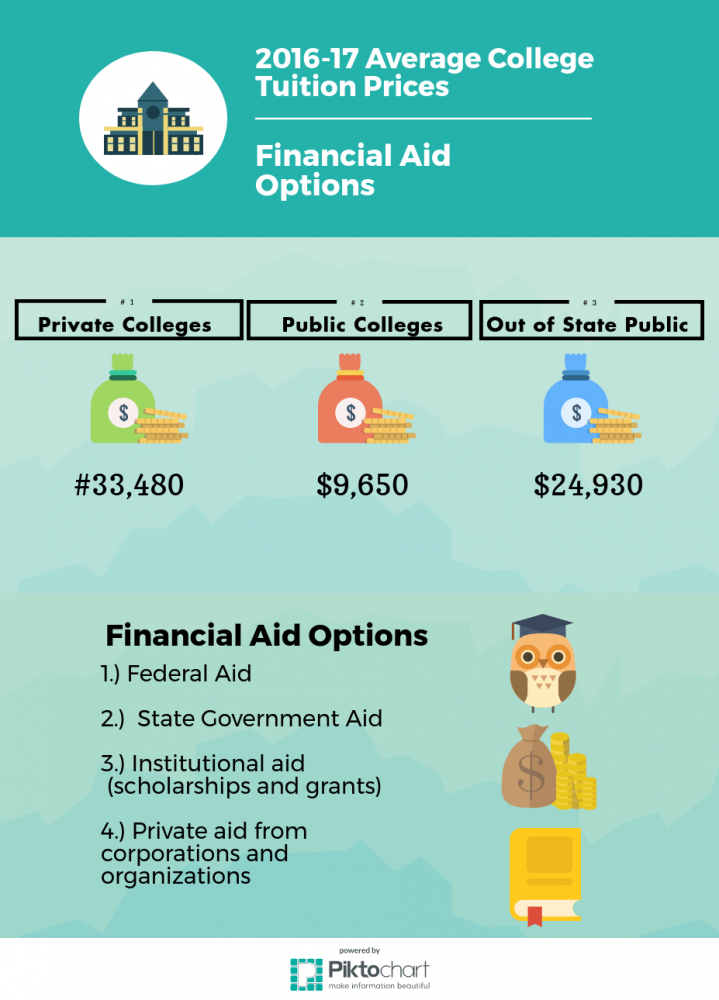The High Cost of a Higher Education: Is It Worth It, and What Are Your Options?

With college tuition on the rise, how will our seniors pay the price?
October 16, 2017
Tensions are on the rise as seniors rush to and fro, securing their spots in colleges all around New Jersey. But with college tuition always rising, the question “Is it worth it?” quite vividly appears in the minds of millions of perturbed parents.
According to collegedata.com, The College Board has determined that “the average cost of tuition and fees for the 2016-2017 school year was a whopping $33,480 at private colleges, $9,650 for state residents at public colleges, and $24,930 for out-of-state residents attending public universities.” For the past decade, it seems that college tuition rates have been increasing by nearly double the inflation rate. While not a major problem for wealthier members of society, the rising costs present challenges for lower income families, so it does help to have options that won’t break the bank.

Education has many benefits. It raises awareness in the world, fosters economic growth, promotes gender equality, and just generally improves the quality of people’s lives. Employers seek well-educated people to perform jobs in today’s increasingly complex culture. For many, a college education means a shot at a better future for both themselves and for the world. Nelson Mandela, a staunch advocate against apartheid and former President of South Africa, once said: “Education is the most powerful weapon which you can use to change the world.”
Often people argue that college graduates make more money than their less educated counterparts, but does this possibility of making money outweigh the risks of potentially swimming in debt? With the high costs of college, many students often find themselves turning to student loans. These loans need to be paid back, and there are some disputes on how much money graduates could have been making at a job with lower qualifications during those years spent at college. This is not to mention that many college students end up not graduating, and so have wasted their own and the government’s money. However, if you’ve made up your mind to go to college, there may yet be hope for you and your wallet.
There are four main sources of financial aid out there that prospective college students can utilize. They are federal aid; state government aid; institutional aid, such as scholarships and grants; and private aid from corporations and organizations, which are also usually presented in the form of loans and scholarships. To apply for federal financial aid, you must file the Free Application for Federal Student Aid (FAFSA).
To learn more about financial aid for New Jersey, you can use this link. Talking to the financial aid officers at the colleges or universities you are interested in is a great way to find out about any scholarships or grants you may be missing out on. Always be on the lookout for any private aid opportunities as well by getting in touch with college financial aid offices or your own guidance counselor here at the school.

















































































































































